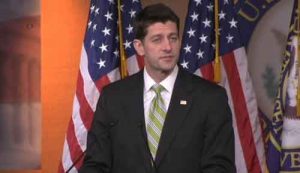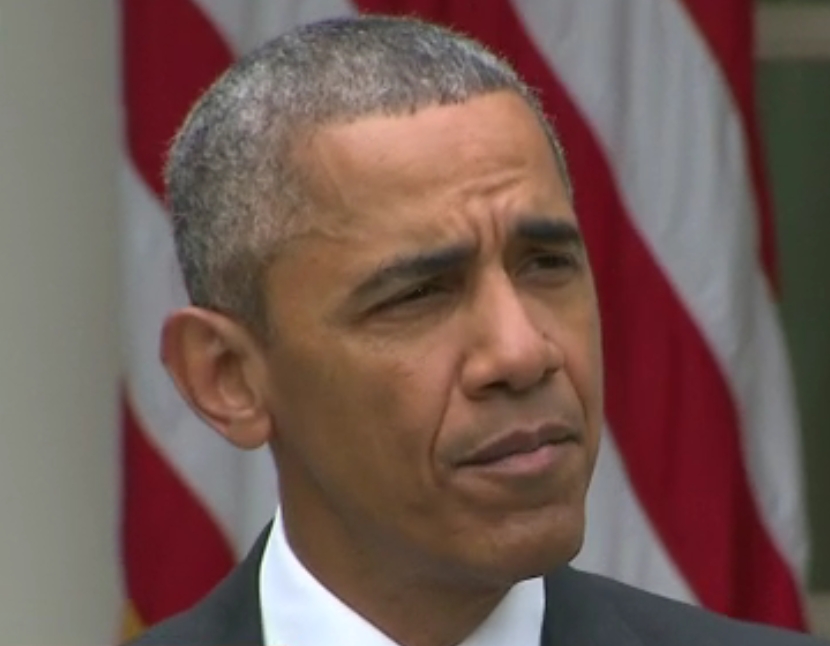
President Donald Trump asked Republican Party leaders to withdraw a controversial health care bill shortly before it was due to be voted on Friday because it became clear there were not enough votes to pass the measure.
Trump said “we were very, very close” to passing the ruling party’s version of a bill intended to replace the Affordable Care Act signed into law by former President Barack Obama seven years ago.
House Speaker Paul Ryan played a leading role in the effort to pass the administration’s proposal, and Friday’s reversal by the administration was a stinging rebuke for him as well as for Trump.
The speaker, the top Republican official in the House of Representatives, had pledged this month that his team would amass the 218 votes necessary to pass the new health care law: “We’ll have 218 [votes] when this thing comes to the floor, I can guarantee you that.”
After the bill was withdrawn, Ryan announced, “We’re going to be living with Obamacare for the foreseeable future.”
Parties at odds
Republicans contend the 2010 law has raised health insurance costs to an unreasonable level and cut insurers’ profits so sharply that they are pulling out of many regional markets. Supporters of the Affordable Care Act from the Democratic Party and other sectors of American society stress that it has provided insurance protection for millions of Americans who otherwise would have none.[xyz-ihs snippet=”adsense-body-ad”]A nonpartisan assessment of the Republican plan by the Congressional Budget Office estimated that the proposed new law would wind up forcing more than 20 million people to drop their insurance over the next decade. Republicans disputed the conclusions of the CBO report, but they did not publish full details of their plan to establish how it would work.
A Reuters/Ipsos opinion poll released Friday indicated that nearly half of about 1,700 American adults randomly surveyed thought the Republican bill would not have improved the Affordable Care Act.
The president spoke to reporters from the Oval Office shortly after the decision to pull the bill.
After he blamed Democrats’ refusal to support the bill for its failure, House Minority Leader Nancy Pelosi of California said at the Capitol, “We’ll take credit for that.”
Trump had campaigned on repeated promises to “repeal and replace” the Affordable Care Act as one of his first acts after he was inaugurated in late January. Friday, however, he gave a different account of his priorities: “I never said ‘repeal and replace Obamacare within 64 days’ [the length of time since the inauguration].” Now, the president said, he plans to switch his attention to other priorities, starting with tax reform.
Ryan and Trump had worked frantically this week to try to persuade “no” voters to change their minds about the administration’s bill. When Ryan unexpectedly went to confer with Trump at the White House on Friday afternoon, it was widely taken as a sign the bill was doomed.
Outreach to lawmakers
White House spokesman Sean Spicer defended Trump’s work in a briefing for reporters earlier in the day. The president has “left everything on the field,” Spicer said, meaning Trump made the utmost effort to to pass the bill. He added that Trump had communicated directly recently with more than 120 members of Congress, “an extraordinary feat.”
Asked whether Ryan had led the vote campaign in the House effectively, Spicer said: “I think the speaker has done everything he can. He’s worked really closely with the president.”
For his part, the president said Friday: “I like Speaker Ryan. I think Paul worked really hard.”
Spicer, speaking before the health care bill was withdrawn, said even that would not be a failure, since “there’s still a huge appetite” for Trump’s agenda, including restrictions on immigration, tax reform and a plan to spend hundreds of billions of dollars on revitalization of the nation’s infrastructure.
Source: VOA [xyz-ihs snippet=”Adsense-responsive”]





